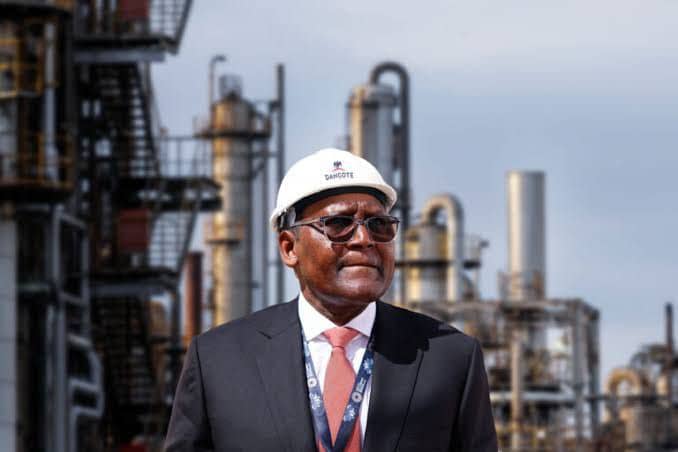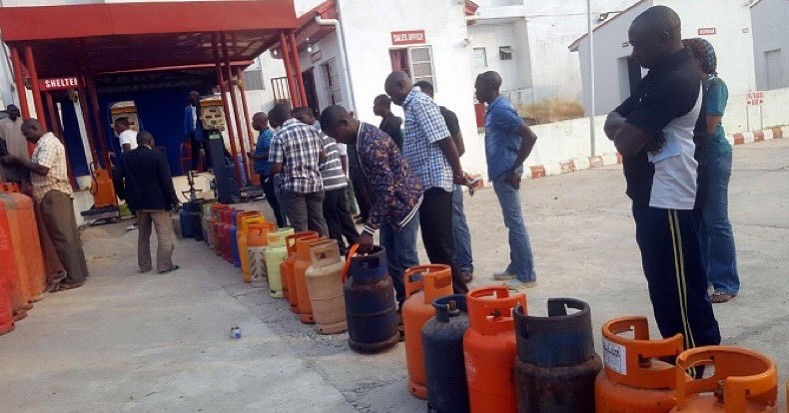Africa’s richest man, Aliko Dangote, has raised concerns over the $90 billion annual loss the continent suffers due to its heavy reliance on imported substandard petroleum products. Dangote made this revelation during the West African Refined Fuel Conference held in Abuja, organized by the Nigerian Midstream and Downstream Petroleum Regulatory Authority (NMDPRA) and S&P Global Commodity Insights.
Africa’s Heavy Dependence on Fuel Imports
Dangote highlighted that Africa imports over 120 million tonnes of refined petroleum products annually, largely because of inadequate local refining capacity. He stressed that much of the imported fuel is of substandard quality, containing toxic blends that would be banned in Europe or North America.
- “We are effectively exporting jobs and importing poverty into our continent. That’s a $90 billion market opportunity being captured by regions with surplus refining capacity,” Dangote said.
Despite producing 7 million barrels of crude oil per day, Africa refines only 40% of its 4.3 million barrels of daily refined product consumption, while Europe and Asia refine over 95% of their needs.
Dangote Refinery’s Operations and Challenges
Dangote disclosed that his refinery imports between 9–10 million barrels of crude oil monthly from the United States and other countries, despite Nigeria’s status as a major oil producer. He expressed gratitude to the NNPC for supplying some Nigerian crude but revealed significant challenges in securing domestic supply at competitive terms.
The Dangote Refinery, described as the world’s largest single-train refinery, was built on 2,735 hectares of swampy land, requiring the pumping of 65 million cubic metres of sand and installing over 250,000 foundation piles. At the peak of construction, more than 67,000 workers were on-site, 50,000 of whom were Nigerians.
HEED: Follow us on Instagram or any other social media platform and get the most reliable news directly in your favorite app!
Key Issues Facing Africa’s Refining Sector
- High Port and Regulatory Costs: Dangote noted that port charges in Nigeria are among the highest in the world, accounting for 40% of total freight costs.
- Lack of Fuel Standard Harmonisation: African countries have varying fuel specifications, which fragment the market and create trade barriers.
- Dumping of Toxic Fuel: Dangote criticized the influx of cheap, low-quality fuels from Russia and other countries, which undercut local refiners.
- Exchange Rate Volatility: The naira’s fluctuation from ₦156/$ to ₦1,600/$ during the refinery’s construction increased project costs.
- Inefficient Local Supply Chain: International trading companies often buy Nigerian crude and resell it to local refiners at high premiums.
A Call for Policy Reform
Dangote urged African governments to protect domestic refiners by adopting policies similar to those in the US, Canada, and EU, which safeguard local industries from the dumping of toxic fuel.
“It defies logic for Africa to export raw crude only to re-import refined products. We are more than capable of refining our products closer to the source and consumption,” he stated.
NaijaBlogDaily is visible on all social media platforms, bringing you the latest Nigerian news on politics, economy, entertainment, and celebrity updates. Including sports across Nigeria and beyond…
Keep visiting and following up with us on any social media platform you are using to keep you updated 💯
Remember (information brings knowledge and power).
STAY TUNED!!!



